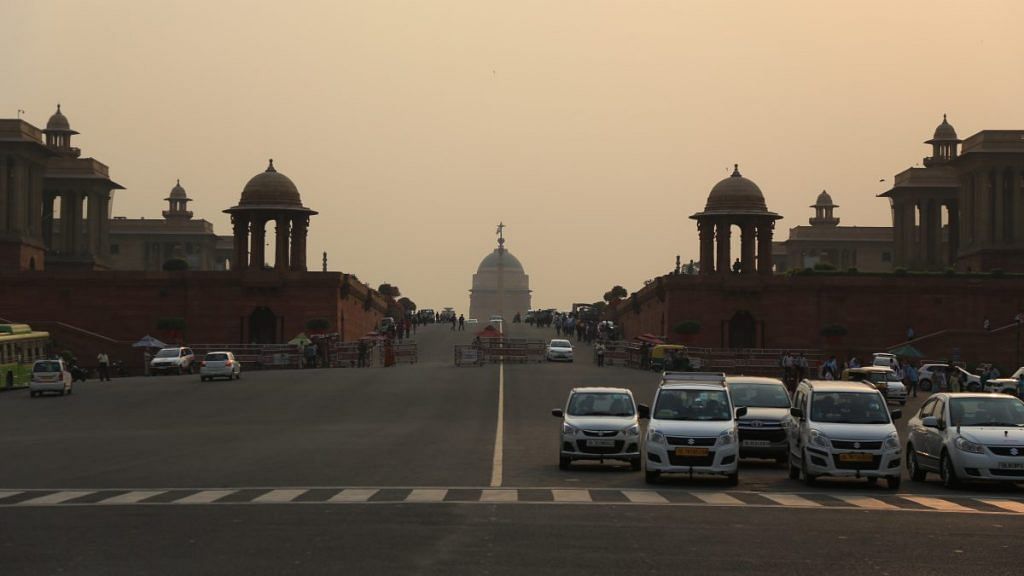Hope that the judiciary wakes up to the travesty of convicting good civil servants like H.C. Gupta.
How is it that despite widespread corruption, inefficiency and incompetence across governments, India remains a country where, by and large, people are relatively safe, secure and prospering?
Because, the outcome of the actions of the good people in government still outweighs the actions of the bad ones — even if the number of good people is comparatively small. Conversely, if a government department, industry sector or state is dysfunctional, it is because it either has too few good people, or that it’s ‘system’ is tuned to unduly amplify the actions of bad people.
On the balance, in my subjective opinion, India’s ‘system’ is still tuned to amplify the good. However, our society, which has been in a state of moral panic for the past decade, is turning the knob dangerously backwards.
Also read: H.C. Gupta’s conviction in coal scam case will force IAS officers to play safe
For how can it be that of the several scams involving powerful politicians and their cronies over the past years, the only people we were able to convict in a coal block irregularities case are three civil servants who are considered to be honest and straightforward? I do not know any of them personally, but their peers are categorical in certifying H.C. Gupta, K.C. Samaria or K.S. Kropha as the most upright of civil servants. The fact that Mr Gupta’s plea states that he has only his pension income to fight his case in court should tell us something.
In any system, good people will normally do good things and bad people will do bad things. If you want to subvert the system, you don’t need to fill it with bad people. You just need to prevent good people from doing good things. The result will be that the actions of the bad people will overcome that of the good, and the system will fall apart.
As Anil Swarup wrote recently, “What has happened will impact decision-making in the government deeply. Officers will become averse to expressing their views on the files.” Upright officers in the government will focus on saving their reputations, careers and pensions instead of making the right decisions in public interest. They will prefer to make no clear decisions or make just the ‘safe’ ones. The unscrupulous ones will make unscrupulous decisions without fear of being punished. And public interest will suffer.
Also read: Former coal secretary HC Gupta, five others held guilty of corruption in coal scam case
In fact, the public tendency to create more inspectors and inspections has actually hurt good decision-making in the bureaucracy. In my personal experience, I know of a top civil servant refusing to take a decision that he knew to be in the public interest, merely because he worried about the risk of controversy close to his retirement.
Instead of getting rid of the administrative complexity that straitjackets our lives, we think that adding one more inspector will fix the problem the previous inspector couldn’t. The CBI was considered ineffective, so we added the Central Vigilance Commission (CVC). We added the RTI and the Central Information Commission (CIC). As if these weren’t sufficient, we want to add a Lok Pal — “one ring to rule them all”. We forget that the institution is only as good as the people in it. If the CBI were staffed by people of impeccable integrity, we wouldn’t need the rest. If the Lok Pal is staffed by a person of questionable integrity, then we’re back to square one. You can’t solve a problem created by government complexity by adding more complexity.
After the 2G scam, I came to know about many young civil servants quitting the telecom ministry because they saw their seniors being unfairly punished and scapegoated. Needless to say, the people who left the government were not only the more talented ones, but also the ones who valued their integrity. They probably are doing quite well in the private sector now, but the country lost some of its better administrators.
We should hope that the judiciary wakes up to the travesty of convicting good civil servants like H.C. Gupta, Samaria and Kropha. Yet, these are the names we still know because they are top civil servants in a high profile case in New Delhi. What about other honest civil servants, including those from the state services, who find themselves as the scapegoats in cases that don’t attract media attention?
Also read: The IAS has thinned at the top of the bureaucracy under the Modi government
The situation will only get worse unless we muster up the good sense to focus on economic liberalisation and administrative reforms, or ‘Reforms 2.0’. There are too many rules, regulations and orders, from too many government departments, making compliance an expensive headache at best, and impossible at worst. This is the root cause of corruption. The only people who can prosper in such circumstances are those who know how to get away with non-compliance. And if the wrongdoing somehow attracts public attention, some poor Gupta, Samaria or Kropha can be found to take the rap.
Nitin Pai is director of the Takshashila Institution, an independent centre for research and education in public policy.
